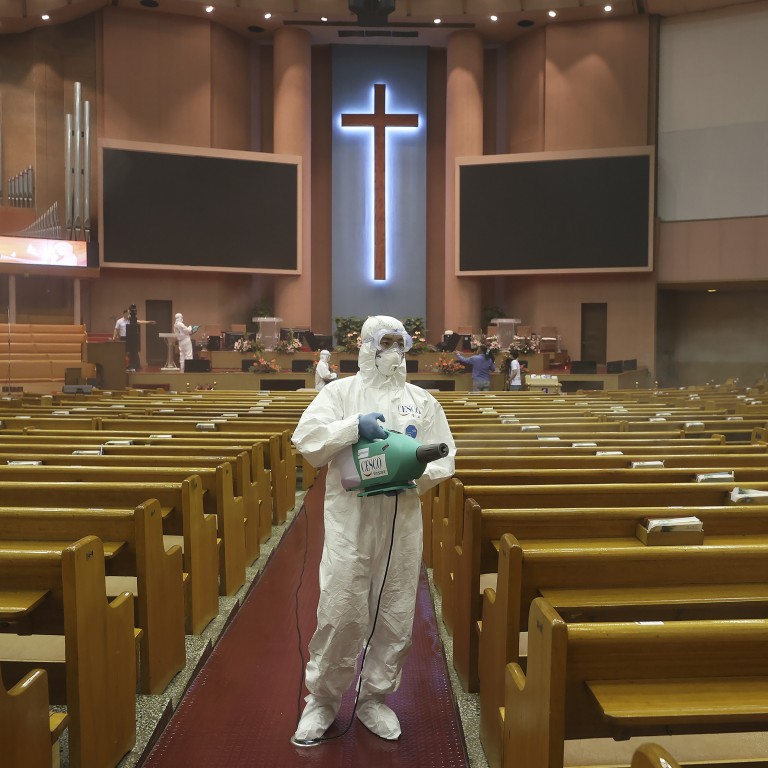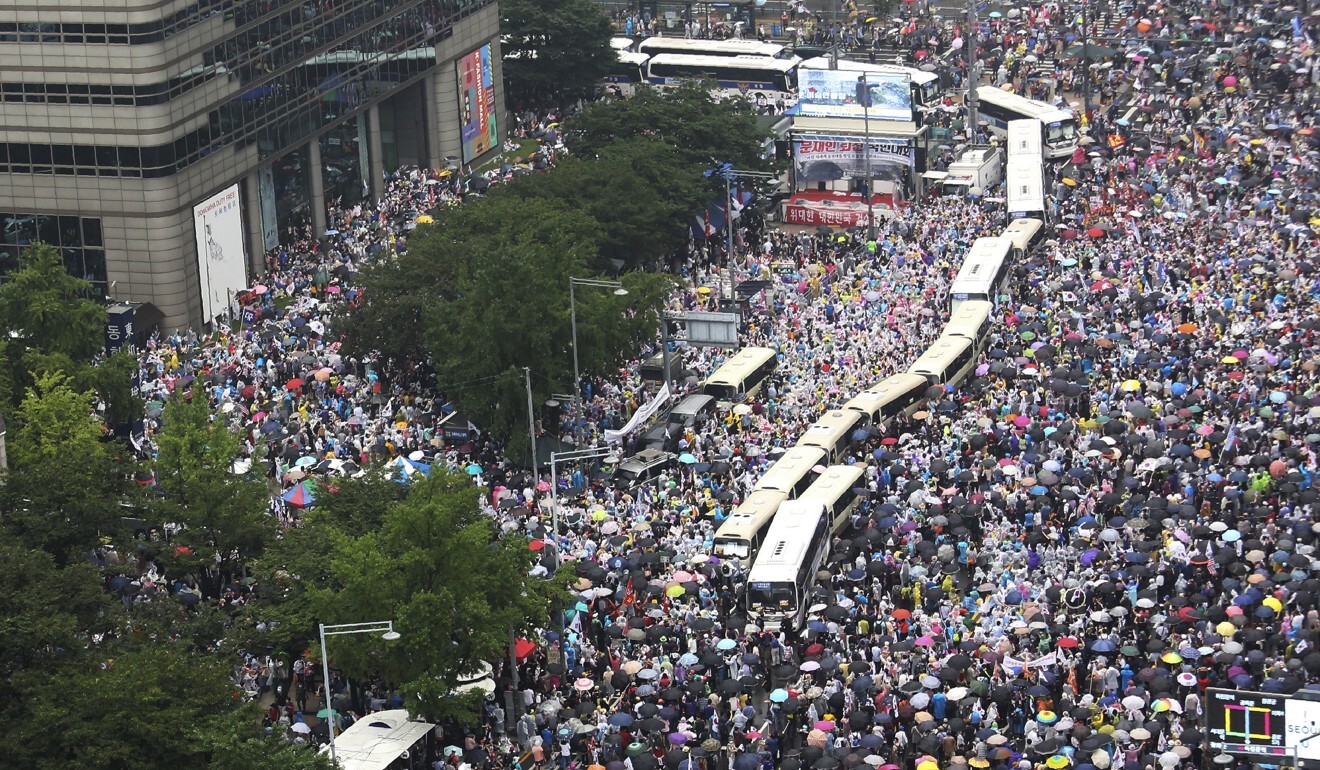
Coronavirus: South Korea bans all religious meetings in ‘last ditch’ bid to quash new outbreak
- Pastor who leads the Sarang Jeil church, which is at the centre of the recent outbreak, dismissed social distancing advice and has since tested positive
- Infections linked to the church have increased to 457, reminiscent of the outbreak involving the secretive Shincheonji church earlier this year
There were 246 new cases confirmed on Tuesday, including 235 local transmissions and 11 imported cases, bringing its total caseload to 15,761, the Korea Centres for Disease Control and Prevention (KCDC) said.
“This is our last ditch for defence against the virus. If we fail to stop it this time, we would be left with no further ammunition,” Prime Minister Chung Sye-kyun said, urging residents to observe social distancing.
“The size of infections in the Seoul metropolitan area, especially the cluster at the Sarang Jeil church, is quite alarming,” said KCDC deputy head Kwon Jun-wook. “We are possibly facing a greater crisis than the Shincheonji outbreak.”
The latest infections are believed to be the so-called GH genetic strain, which is more infectious than earlier Shincheonji-linked cases, health authorities said.
South Korea appeared to have succeeded in flattening the curve of infections, having avoided serious lockdowns by instead implementing aggressive testing and tracing. However, infections have surged in recent weeks, and South Korea has now reported more than 100 new infections five days in a row.

Ignoring social distancing advice, Jeon urged followers to join a massive anti-government rally on the weekend. At least 10 followers who have tested positive attended the event, prompting health authorities to urge thousands to get tested.
Health authorities said they have carried out tests on 2,500 church members and were tracking the whereabouts of about 800 members. Some 15 per cent of the church members tested were confirmed to have been infected with the virus. At least two Sarang Jeil church followers who tested positive broke quarantine and fled before being arrested.
After Jeon was taken to a specialised Covid-19 hospital, he was seen talking loudly over the phone with a mask lowered well below his mouth, potentially exposing paramedics in the ambulance to infection.
“Don’t treat them with tax money. Let them die,” one angry internet user wrote on a news portal.
What’s behind South Korea’s attraction to fringe churches?
The National Council of churches in Korea, an umbrella group of Christian churches, issued a public apology, admitting churches were at the centre of the recent outbreak.
“Mr Jeon, who continues with extremist political actions and indulges in anti-life behaviour and sophism must be punished by justice,” it said.

